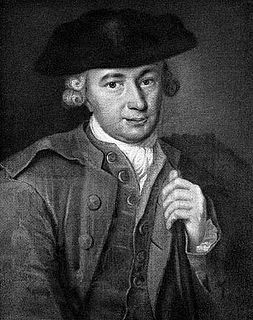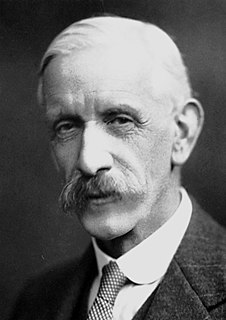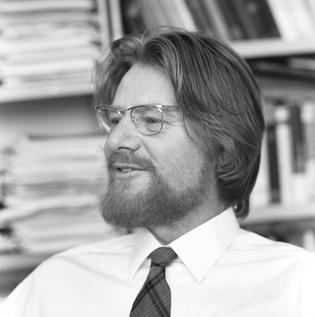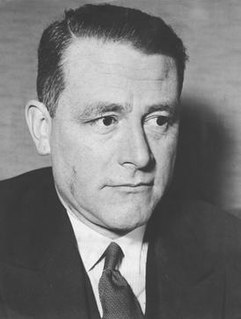A Quote by Werner Heisenberg
One may say that in a state of science where fundamental concepts have to be changed, tradition is both the condition for progress and a hindrance. Hence, it usually takes a long time before the new concepts are generally accepted.
Related Quotes
Metaphysics is the study of the most general nature and basic structure of reality, and therefore the concepts of metaphysics, concepts like time, space, identity, resemblance, substance, property, fact, event, composition, possibility, etc., are the most fundamental concepts. Thus metaphysics is the most fundamental theoretical discipline.
It is an old saying, abundantly justified, that where sciences meet there growth occurs. It is true moreover to say that in scientific borderlands not only are facts gathered that [are] often new in kind, but it is in these regions that wholly new concepts arise. It is my own faith that just as the older biology from its faithful studies of external forms provided a new concept in the doctrine of evolution, so the new biology is yet fated to furnish entirely new fundamental concepts of science, at which physics and chemistry when concerned with the non-living alone could never arrive.
I think that a lot of things are hard to read if you're not in the vocabulary flow of that particular discourse. I sometimes forget that even though the words I'm using are fairly ordinary words, the concepts around which they cluster, which are the long concepts of literary tradition, may not be familiar to an audience.
The concept of 'measurement' becomes so fuzzy on reflection that it is quite surprising to have it appearing in physical theory at the most fundamental level ... does not any analysis of measurement require concepts more fundamental than measurement? And should not the fundamental theory be about these more fundamental concepts?
I served for 42 years on the board of trustees of the largest Presbyterian seminary, Princeton Theological Seminary, and we had brilliant people - teachers and students both-but they did not come up with many new concepts. They weren't invited to come up with new concepts. Anybody who had come up with a new concept would have been under suspicion for being out of step with the tradition or out of step with the teachings of the church.
I have tried to read philosophers of all ages and have found many illuminating ideas but no steady progress toward deeper knowledge and understanding. Science, however, gives me the feeling of steady progress: I am convinced that theoretical physics is actual philosophy. It has revolutionized fundamental concepts, e.g., about space and time (relativity), about causality (quantum theory), and about substance and matter (atomistics), and it has taught us new methods of thinking (complementarity) which are applicable far beyond physics.
The Most Secret Quintessence of Life is an original work filled with rich, new research, relying on important primary literature which has not, until now, been plumbed and digested. In this book, Chandak Sengoopta offers both a history of hormone discovery and a chronicle of how this discovery transformed our concepts of the body and how our existing concepts of sex and sexuality, in turn, informed our concepts for understanding hormones.
The progress of science has always been the result of a close interplay between our concepts of the universe and our observations on nature. The former can only evolve out of the latter and yet the latter is also conditioned greatly by the former. Thus in our exploration of nature, the interplay between our concepts and our observations may sometimes lead to totally unexpected aspects among already familiar phenomena.
Every morning I'd have coffee with my wife and we would discuss ideas. Sixty percent of what I did for the stores was concepts. The other forty percent was correcting and cleaning up other concepts in house, or doing final art on my concepts. Most of my concepts were so finished they could turn them over to somebody else.
Mysticism is a rational enterprise. Religion is not. The mystic has recognized something about the nature of consciousness prior to thought, and this recognition is susceptible to rational discussion. The mystic has reasons for what he believes, and these reasons are empirical. The roiling mystery of the world can be analyzed with concepts (this is science), or it can be experienced free of concepts (this is myticism). Religion is nothing more than bad concepts held in place of good ones for all time. It is the denial-at once full of hope and full of fear-of the vastitude of human ignorance.




































